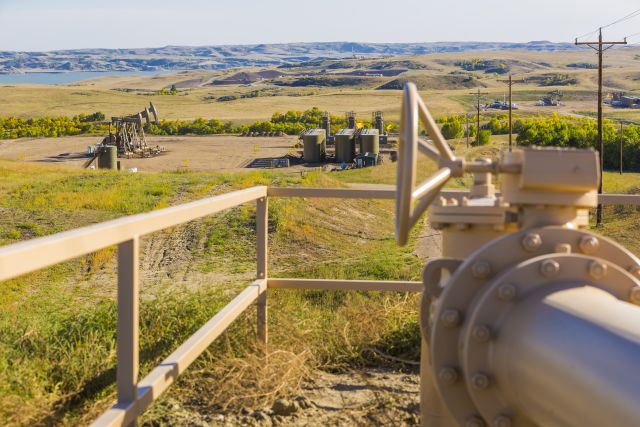Summit Midstream Partners Plead Guilty in Largest U.S. Inland Spill from Oil Drilling
WASHINGTON (Reuters) — Pipeline operator Summit Midstream Partners pleaded guilty in federal court in Bismarck, North Dakota, on Wednesday to criminal water pollution charges stemming from what prosecutors call the largest-ever land-based spill from oil drilling.

The company agreed to pay $36.3 million to settle the criminal charges, as well as parallel civil charges filed by the U.S. government and the state of North Dakota.
The company acknowledged that it was criminally negligent when in August 2014, 29 million gallons (132 million liters) of produced water, a waste product from fracking, spilled from its pipeline near Williston, North Dakota, contaminating the groundwater as well as more than 30 miles (48.28 km) of tributaries of the Missouri River.
Produced water caused by this method of drilling contained high concentrations of saline, as well as oil, radioactive substances and pollutants such as ammonia, aluminum and arsenic, among other things, prosecutors say.
The spill continued for five months before it was finally contained and reported to the federal government, as required by the Clean Water Act.
Email evidence obtained by government investigators shows that company officials and contractors were aware of numerous blowouts while the pipeline was being pressure-tested, with an inspector at one point saying the company was using lower-than-recommended testing pressures.
"What is known, is that the installation was negligent and that the rupture was consistent with negligent installation," the government wrote in court filings.
In a statement when the plea agreement was first announced in August, Summit Chief Executive Heath Deneke said: "We have accepted responsibility for the produced water spill at the Blacktail Creek site from the beginning and have been working diligently over the past seven years on efforts to fully remediate the environmental impacts to the area."
The plea deal marks one of the most significant environmental enforcement actions by the Justice Department's Environment and Natural Resources Division since President Joe Biden took office.
During Donald Trump's presidency, criminal environmental prosecutions declined significantly.
According to data analyzed by the Transactional Records Access Clearinghouse at Syracuse University, during the 2019 fiscal year, there were 302 environmental prosecutions - fewer than any year during the Obama, Bush or Clinton administrations.
During the Trump administration, the division was led by Assistant Attorney General Jeffrey Bossert Clark, a conservative who frequently clashed with career attorneys inside the division over his narrow interpretations of the Clean Air and Clean Water acts.
On his last day on the job, Clark issued a flurry of orders, including one calling on the division to largely refrain from bringing criminal or civil environmental cases, noting many violations "should be addressed and resolved without federal involvement."
The memo was overturned after Clark's departure, and he has since come under congressional scrutiny for a failed bid to oust then-Acting Attorney General Jeff Rosen so he could launch an investigation to help bolster Trump's false claims that the election was stolen.
The division's new Assistant Attorney General, Todd Kim, is a department veteran who is expected to boost enforcement and back efforts to protect low income and minority communities from environmental harm.
Related News
Related News

- Enbridge Plans 86-Mile Pipeline Expansion, Bringing 850 Workers to Northern B.C.
- Intensity, Rainbow Energy to Build 344-Mile Gas Pipeline Across North Dakota
- U.S. Moves to Block Enterprise Products’ Exports to China Over Security Risk
- Strike Pioneers First-of-Its-Kind Pipe-in-Pipe Installation on Gulf Coast with Enbridge
- 208-Mile Mississippi-to-Alabama Gas Pipeline Moves Into FERC Review
- U.S. Pipeline Expansion to Add 99 Bcf/d, Mostly for LNG Export, Report Finds
- A Systematic Approach To Ensuring Pipeline Integrity
- 275-Mile Texas-to-Oklahoma Gas Pipeline Enters Open Season
- LNG Canada Start-Up Fails to Lift Gas Prices Amid Supply Glut
- Kinder Morgan Gas Volumes Climb as Power, LNG Demand Boost Pipeline Business




Comments